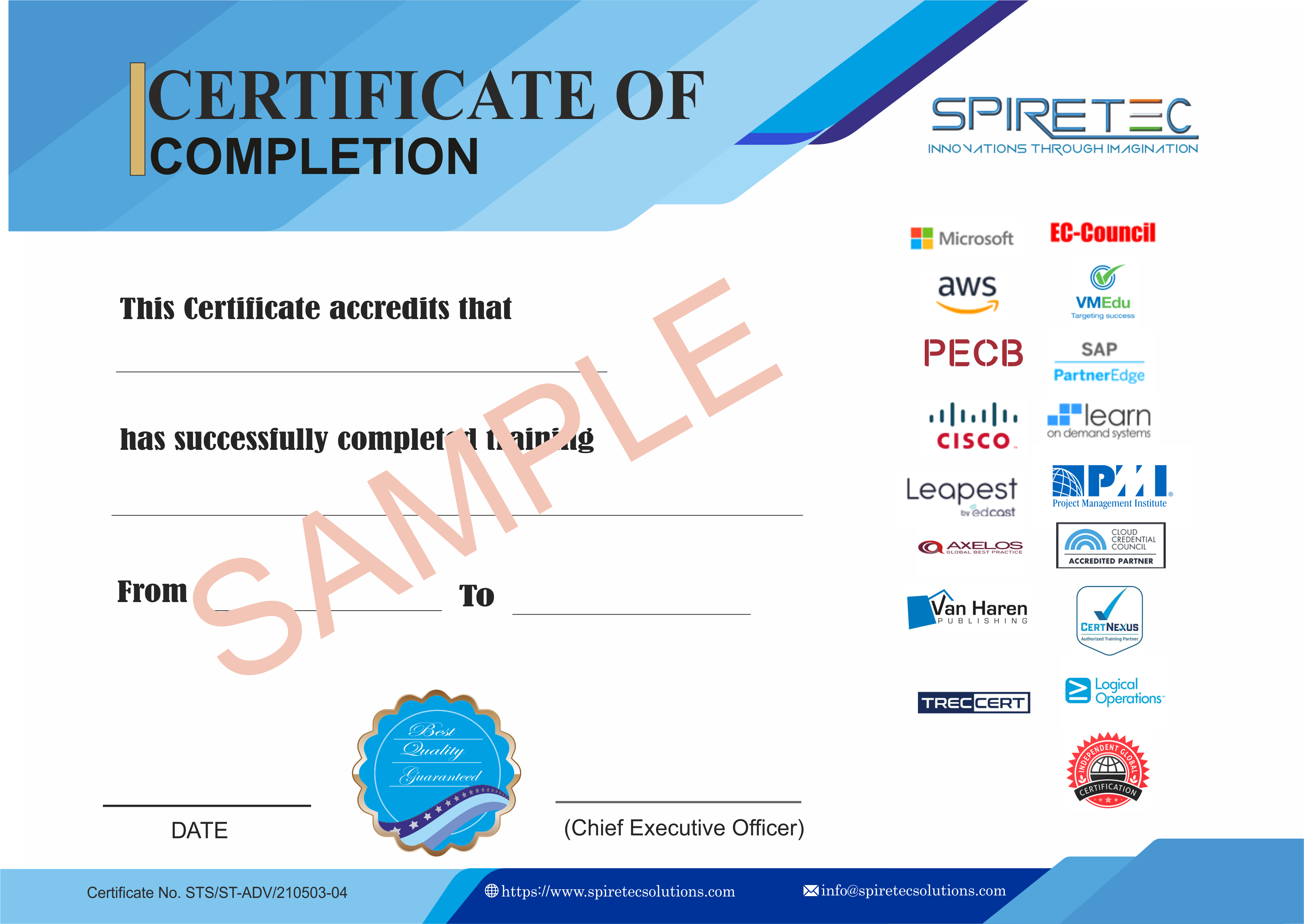The M55372A: Microsoft Azure Advanced Administration certification validates a person’s expertise in the implementation, monitoring, and maintenance of Microsoft Azure solutions, ranging from storage and security tasks to networking and cloud capabilities. It is all about strengthening and demonstrating advanced skills in Azure environments. In industries, this certification is used to verify an individual's ability to use Microsoft Azure for advanced administrative tasks. It's highly sought after in IT and software development fields as it symbolically endorses an individual's capacity to handle complex technical tasks, such as configuring and managing virtual networks or managing Azure identities and governance, thus ensuring optimal productivity and efficiency in Azure-based activities.
Who Should Attend?
This course is ideal for IT professionals with a strong background in IT operations such as networking, virtualization, identity, security, and disaster recovery, among other areas. Attendees should be comfortable with the Azure Portal and the Command Line Interface. Completion of AZ-104 – Microsoft Azure Administrator is recommended.
What You’ll Learn?
By the end of this course, students will be able to:
-
Implement Azure Active Directory and Hybrid Identities
-
Configure Virtual Networking and Virtual Machines for Windows and Linux
-
Set up Load Balancing and Network Security
-
Manage Storage Accounts, NoSQL Databases, and Azure SQL Databases
-
Automate Deployment and Configuration
-
Implement Azure Governance and Security for Applications
-
Manage Workloads and Container-Based Applications
Course Outline:
Module 1: Implement Azure Active Directory
In this module, you will learn how to secure identities with Azure Active Directory, and implement users and groups.This module includes:
Module 2: Implement and Manage Hybrid Identities
In this module, you will learn how to install and configure Azure AD Connect and implement Azure AD Connect Health.This module includes:
Module 3: Implement Virtual Networking
In this module, you will learn about basic virtual networking concepts like virtual networks and subnetting, IP addressing, network security groups, Azure Firewall, and Azure DNS.This module includes:
Module 4: Implement VMs for Windows and Linux
In this module, you will learn about Azure virtual machines including planning, creating, availability and extensions.
Module 5: Implement Load Balancing and Network Security
In this module, you will learn about network traffic strategies including network routing and service endpoints, Azure Load Balancer, Azure Application Gateway, and Traffic Manager.
Module 6: Implement Storage Accounts
In this module, you will learn about basic storage features including storage accounts, blob storage, Azure files and File Sync, storage security, and storage tools.
Module 7: Implement NoSQL Databases
In this module, you will learn about Azure Table Storage and recommend options for CosmosDB APIs.
Module 8: Implement Azure SQL Databases
In this module, you will create an Azure SQL Database single database, create an Azure SQL Database Managed Instance, and review high-availability and Azure SQL database.
Module 9: Automate Deployment and Configuration of Resources
In this module, you will learn about the tools an Azure Administrator uses to manage their infrastructure.
Module 10: Implement and Manage Azure Governance
In this module, you will learn about managing your subscriptions and accounts, implementing Azure policies, and using Role-Based Access Control.
Module 11: Manage Security for Applications
In this module, you will learn about Azure Key Vault and implementing authentication using Azure Managed Identities.
Module 12: Manage Workloads in Azure
In this module, you will learn how to migrate workloads using Azure Migrate, perform VMware agent-based and agent-less migrations, and perform Azure Backup and Azure Site Recovery.
Module 13: Implement Container-Based Applications
In this module, you will learn how to run Azure Container instances and how to deploy Kubernetes with AKS.
Module 14: Implement an Application Infrastructure
In this module, you will learn how to create an App Service web App for Containers, create and configure an App Service Plan, and create and manage Deployment Slots.
Module 15: Implement Cloud Infrastructure Monitoring
In this module, you will learn about Azure Monitor, Azure Workbooks, Azure Alerts, Network Watcher, Azure Service Health, Azure Application Insights.







 Live Online Training (Duration : 40 Hours)
Live Online Training (Duration : 40 Hours)
